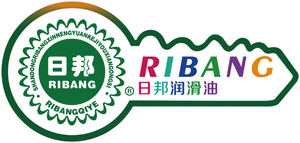- English
- 简体中文
- Esperanto
- Afrikaans
- Català
- שפה עברית
- Cymraeg
- Galego
- 繁体中文
- Latviešu
- icelandic
- ייִדיש
- беларускі
- Hrvatski
- Kreyòl ayisyen
- Shqiptar
- Malti
- lugha ya Kiswahili
- አማርኛ
- Bosanski
- Frysk
- ភាសាខ្មែរ
- ქართული
- ગુજરાતી
- Hausa
- Кыргыз тили
- ಕನ್ನಡ
- Corsa
- Kurdî
- മലയാളം
- Maori
- Монгол хэл
- Hmong
- IsiXhosa
- Zulu
- Punjabi
- پښتو
- Chichewa
- Samoa
- Sesotho
- සිංහල
- Gàidhlig
- Cebuano
- Somali
- Тоҷикӣ
- O'zbek
- Hawaiian
- سنڌي
- Shinra
- Հայերեն
- Igbo
- Sundanese
- Lëtzebuergesch
- Malagasy
- Yoruba
- Español
- Português
- русский
- Français
- 日本語
- Deutsch
- tiếng Việt
- Italiano
- Nederlands
- ภาษาไทย
- Polski
- 한국어
- Svenska
- magyar
- Malay
- বাংলা ভাষার
- Dansk
- Suomi
- हिन्दी
- Pilipino
- Türkçe
- Gaeilge
- العربية
- Indonesia
- Norsk
- تمل
- český
- ελληνικά
- український
- Javanese
- فارسی
- தமிழ்
- తెలుగు
- नेपाली
- Burmese
- български
- ລາວ
- Latine
- Қазақша
- Euskal
- Azərbaycan
- Slovenský jazyk
- Македонски
- Lietuvos
- Eesti Keel
- Română
- Slovenski
- मराठी
- Srpski језик
The Impact of Water on Lubricant Performance
2024-06-24
https://www.sdrboil.com/fully-synthetic-or-synthetic-turbine-oil-sp-5w-30.html
The Impact of Water on Lubricant Performance

Water is the main and most complex "pollutant" encountered in the use of lubricants. When water is absorbed, the functionality of the oil decreases accordingly, eventually leading to deterioration of the oil and making it unusable. Therefore, water has a significant impact on lubricants.
The environment and working conditions in which the lubricant is located will make the water phenomenon unavoidable, because the lubricant itself has a certain degree of water absorption, so you want to completely solve the impact of water on the lubricant is almost impossible, but can be used in the following ways for effective prevention, that is, in the process of use should be to reduce or control the entry of water, to determine the presence of water and detect its content, as soon as possible to separate and remove the water.

Water exists in lubricants in three forms, namely dissolved water, emulsified water and free water.

Dissolved water refers to the chemical reaction between water molecules and oil molecules, which is evenly dispersed in the lubricant in the form of molecules.

This form of water can not be observed with the naked eye, and the appearance of the lubricant does not have a significant impact, still maintain a clear and transparent state; emulsified water is when the water into the lubricant more than a certain amount of emulsified state exists, so that the appearance of the oil products show haze, turbidity or even emulsion; free water is when the amount of water into the lubricant continues to increase, or the oil's ability to break emulsification of the case, the water from the Free water is when the amount of water into the lubricant continues to increase, or the oil emulsification ability is stronger, water will be precipitated from the lubricant and exist in a free state, which can be observed with the naked eye, that is, what is usually referred to as "bright water".

The amount of water dissolved in the lubricant depends on the type of base oil, the degree of refining, the amount and polarity of additives, the degree of degradation of the oil in use, the viscosity of the oil and the temperature at which it is used.

For example, under normal circumstances, the water absorption of ester base oil is stronger than hydrocarbon base oil, the water absorption of Class I base oil is stronger than Class III base oil, the water absorption of internal combustion engine oil and gear oil is stronger than that of hydraulic oil and turbine oil, the water absorption of in-use lubricating oils with a larger degree of degradation is stronger than that of those that have just been put into use, the water absorption of lubricating oils with a higher temperature is stronger than that of lubricating oils with a lower temperature, and the water absorption of lubricating oils with a larger viscosity is larger than that of those with a smaller viscosity. A lubricant with a high viscosity has a greater water absorption than a lubricant with a low viscosity.

The presence of water will promote the oxidation of the oil deterioration, damage the oil film formed by the lubricant, accelerate the corrosion of organic acids on the metal, accelerate the wear of mechanical parts; water will also make the additives hydrolysis reaction and failure, resulting in precipitation, blockage of the oil circuit, impede the circulation of lubricants and supply.

At low temperatures, the water in the lubricant, will lead to lubricant fluidity deterioration, viscous temperature bad; at high temperatures, the water will be vaporized, destroying the oil film and produce gas resistance, affecting the lubricant cycle. Regular monitoring is required to determine the form and amount of water present, as well as to control its entry and separate it for removal as quickly as possible.







